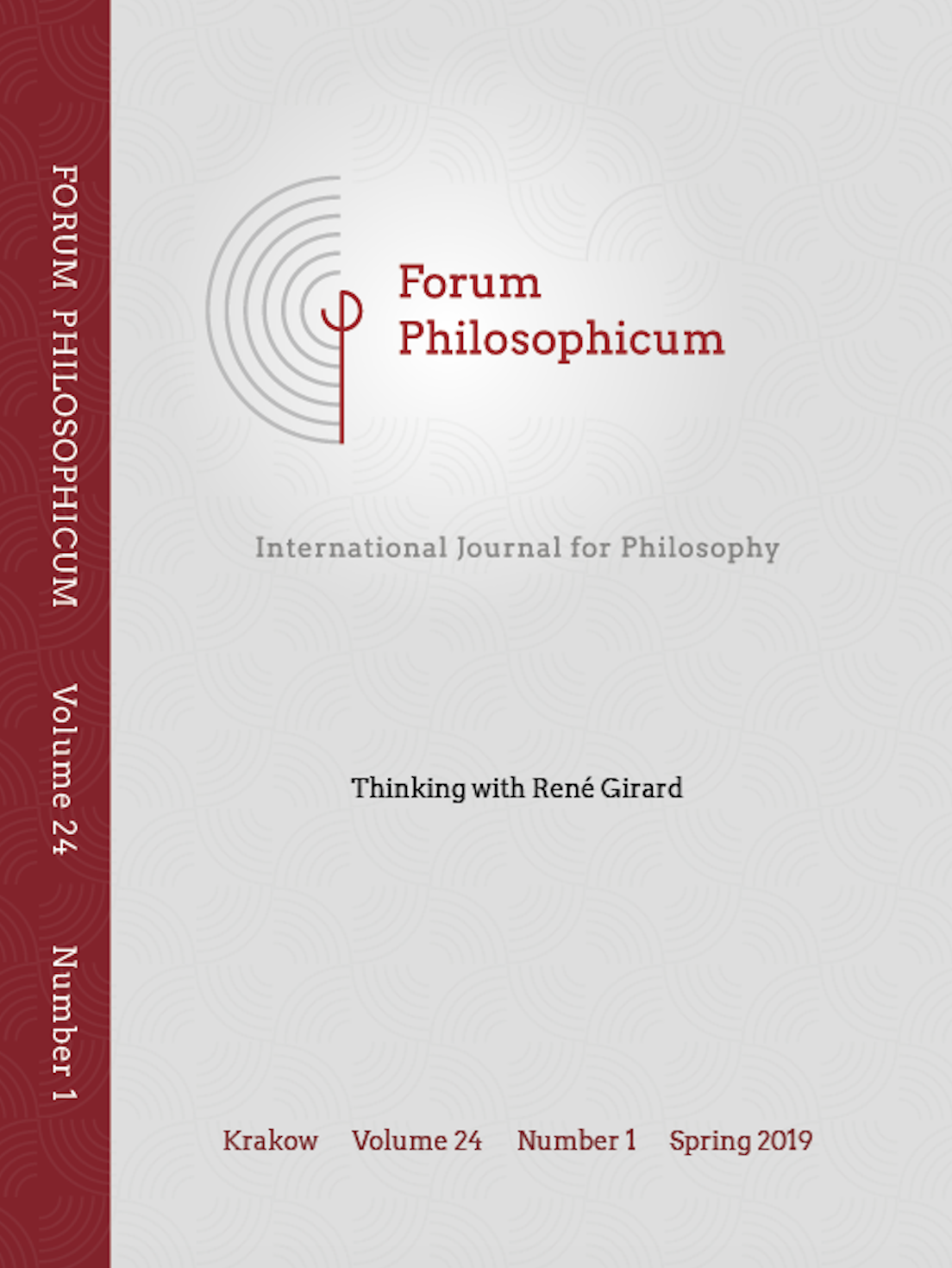24/1 – Spring 2019
Thinking with René Girard

After “Mimetic Wisdom. René Girard and the Task of Christian Philosophy” we are pleased to present another thematic issue dedicated to Mimetic Theory. This time the inquiries presented are pursued with reference to a wider philosophical background. The issue makes available seven papers, delivered by scholars who, in their attempts to think with René Girard, discuss a variety of problems connected with anthropology, ethics and the philosophy of religion.
Mathias Moosbrugger rereads Girard’s intellectual biography with an emphasis on the methodological rearrangement of Mimetic Theory – i.e. Girard’s movement beyond both deconstructivist literary criticism à la Derrida and Durkheim’s more classical sociologism with respect to historical methods and analysis. Starting with a juxtaposition between deconstructive (generally represented by liberals) and communitarian (generally represented by conservatives) interpretations of Girard’s thought, Colby Dickinson indicates some baseline conditions as to how the resolution between these conflicting sides might occur. By referring to Hannah Arendt’s account of St Augustine’s philosophy of love, and by bringing together several threads in Augustine’s thinking, Andrew O’Shea sheds new light on mimetic theory – especially on Girard’s early view of desire and novelistic conversion. Andreas Wilmes, using Girard’s concepts of “desire for death” and “obstacle addiction”, critically examines the “humanisation of nothingness” – the specific kind of modern humanism that started with Kojève’s promethean reading of Hegel’s Phenomenology and then continued with Sartre’s existentialism and Camus’s atheistic humanism. While some work has been done on comparing the œuvres of Emmanuel Levinas and René Girard, Tannia Checci highlights, without blurring the significant differences involved, an oft-overlooked point of commonality between both of these thinkers: their analogous accounts of the mythic dynamics of undifferentiation. In his essay, Pierpaolo Antonello supplements ongoing debates surrounding the intersections between Giorgio Agamben and René Girard by, inter alia, re-examining from the perspective of mimetic theory such key ideas of Agamben as “homo sacer”, the “bios/zoe” distinction, “state of exception”, and the dissociation between culpa and individual responsibility in archaic law. Adapting Girard’s interpretative method, John Ranieri argues that the Quranic Jesus, though distinctively Islamic, reveals similar truths to the Jesus of the Gospels: namely, truths about mimetic rivalry, scapegoating and a God who sides with victims.

 Articles
Articles Mathias Moosbrugger
Mathias Moosbrugger Colby Dickinson
Colby Dickinson Andrew O'Shea
Andrew O'Shea Andreas Wilmes
Andreas Wilmes Tania Checch
Tania Checch Pierpaolo Antonello
Pierpaolo Antonello John Ranieri
John Ranieri
 Book Reviews
Book Reviews Emanuele Antonelli
Emanuele Antonelli Piotr Ufnal
Piotr Ufnal




